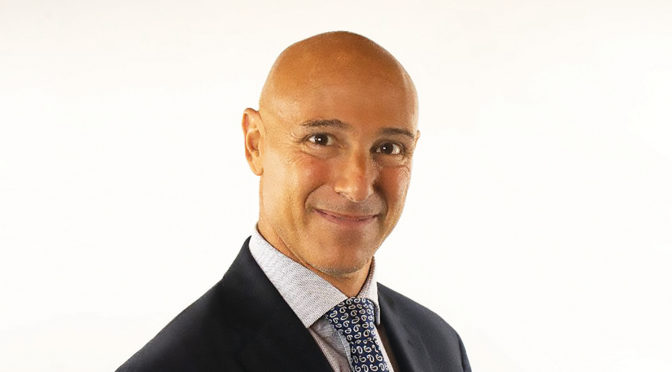Many horse trainers not only provide training to the equine athletes in their charge but also provide feed and care for those horses. This is commonly billed to the owner as “training board.” However, and contrary to common belief, if the owner of a horse on training board does not pay the trainer for the entire bill, in most states, a trainer cannot claim a lien against the horse for unpaid amounts attributable to training fees. To make such a claim is to make an improper lien.
In this article, I discuss the proper scope of a lien. That is, what amounts can be claimed?
Florida, like most states, does not permit liens against horses for training services. Most states do not have specific lien statutes specifically designating non-payment of “training fees” as a legal basis to claim a lien against a horse and sell the horse to satisfy the lien.
The general principal of interpretation of law is that if something is not specifically included, then the statute should be read to omit it. Therefore, under Florida law, and in many other states, because training services are not specifically mentioned in the stablekeeper’s lien law, unpaid training fees do not properly subject the horse to a lien. In contrast, exceptions to this general rule are the stablekeeper’s liens laws of Maryland and West Virginia, which specifically state that training services are properly subject to a lien.
In other states, such as Florida, which do not specifically list or include “training” or “training fees” along with “care and feeding” of a horse, a trainer should be wary of claiming too large a lien upon a horse when providing multiple services to a horse. For example, Florida’s stablekeeper’s lien law (F.S. § 713.65), otherwise known as an agister’s lien, does not include a right to lien for unpaid training fees associated with a horse. The law is very specific in that it provides for a possessory lien in favor of the stablekeeper for “the caring and feeding” of a horse. The language of the statute does not include “training” in the categories of services provided.
The logical and proper interpretation of the law, using the common meaning of the words “care and feeding,” leads to the reasonable conclusion that Florida’s statute does not allow a trainer to impose a claim of lien against a horse pursuant to F.S. § 713.65 for unpaid training fees.
Reading other Florida statutes on the topic leads to the reasonable conclusion that the Florida Legislature specifically declined to include training expenses into a second lien statute on the subject. Specifically, F.S. § 713.66, which applies to racehorses, polo ponies and dogs, allows a non-possessory lien only to those who “furnish corn, oats, hay, grain or other feed or feedstuffs or straw or bedding material” for the cost thereof. As well, the legislature has provided an express remedy in F.S. § 713.655 to veterinary professionals for the professional services veterinarians supply to horses.
The point is that while providing feed providers and veterinarians specific lien rights against horses for their materials and services, a lawmaking body, such as the Florida Legislature, may have not specifically provided equine trainers a right of lien against horses for training services. In that case, a trainer and his or her attorneys should resist the temptation to include all overdue charges in a claim of lien when some of those overdue charges include training fees.
In contrast, Florida’s stablekeeper’s lien law does not specifically enumerate “training” or “trainers” as being a lienable charge and a party entitled to impress a lien for training services. “Feeding or caring for” and “feeding and taking care of” are not the same words and do not have the same meaning as “training,” and the statute does not ever mention “trainers” as a professional service provider entitled to impress a lien for training services. Accordingly, the amount of a proper stablekeeper’s lien on horses in Florida is, therefore, limited to the care and feeding costs and no more.
Finally, be aware that a party exercising self-help under Florida law does so at his or her peril. Therefore, a stablekeeper who imposes an improper lien for a too-large amount, and later causes a sale of the horse, is not free from responsibility of the improper lien. Florida courts have held that when a sale of a horse pursuant to a stablekeeper’s lien passes ownership of the horse, it does not establish the legitimacy of the underlying debt or of the lienor’s conduct. In other words, if a trainer imposes a lien for charges that are not properly included under F.S. § 713.65 and then forecloses the lien by selling the horse or horses under F.S. § 85.031 (non-judicial, public sale), the sale does not legitimize the actions of the trainer and the trainer is not immune to an action by the horse owner for foreclosing on a lien based on an inflated amount that should not have included training charges.
For these reasons, a stablekeeper, and his or her attorneys, should be wary of asserting a lien amount on a horse that covers amounts that are not covered by Florida’s stablekeeper’s lien law.
Confused yet? The process of impressing and foreclosing on the lien, as well as holding the public sale or pursuing judicial sale, are equally complex. I recommend the assistance of legal counsel when these issues arise.
Attorney Avery S. Chapman is the founding and inaugural chair of the Equine Law Committee of the Animal Law Section of the Florida Bar. He practices in Wellington, where he counsels members of the equine industry and athletes on a wide range of matters. Chapman may be reached at asc@chapmanlawgroup.net or through www.equinelawgroup.com.
